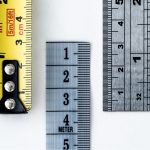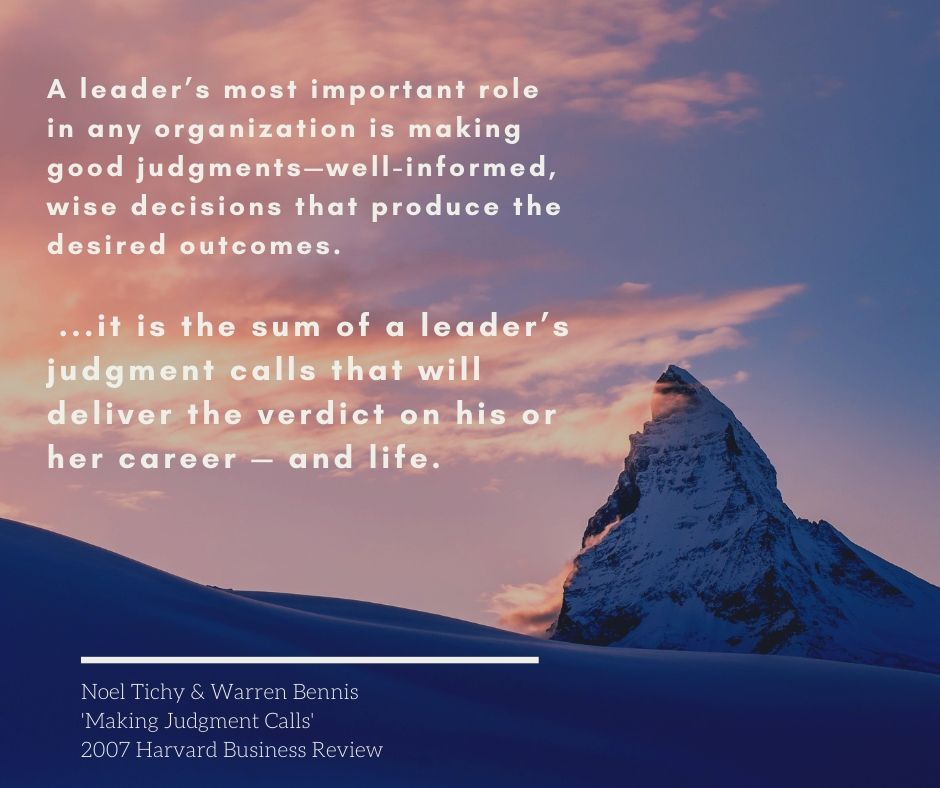Leadership requires good judgement

“Tell me what to do and I’ll do it” said a leader to me once during a program roll out. He wanted a clear road map to tell him what to do. The problem was that there was no clear road map.
In this case, we were trying to identify and fix some culture and engagement problems in the department. But this same response happens frequently – leaders want easy solutions for hard situations.
There is no easy button for leadership.
Leaders exist to provide direction and apply judgment to a myriad of complicated and unclear situations.
Leadership is hard. That’s what you get paid for.
Complex Workplaces
Workplaces are complex environments with ever-changing circumstances, players, crises, cycles and challenges.
In addition to wanting clear guidelines, leaders also often complain about getting pulled away from their “real work” to deal with issues or do people-related processes.

To these leaders, their “real work” relates to their technical specialty and accomplishing tasks rather than dealing with the complex and gray components of leadership. Tasks are measurable can provide a feeling of accomplishment and progress.
Good leadership – and good judgment – is not easy to do or measure.
This difficulty explains why organizations require humans in leadership roles. If everything was easy and clear, leadership would be provided by checklists, decision trees, systems and artificial intelligence.
Only people – good leaders – can balance the needs of the company, team and employee to solve issues and find the right solution.
Good leadership requires good judgment.
Defining Leadership Judgment
The first competency in the Magnify Impact Coaching (MIC) model of senior leader effectiveness is ‘Apply Judgment’. It appears first to emphasize the importance of this hard-to-define, but yet critical, competency.

Dictionary.com defines ‘judgment’ as a noun that means ‘the ability to judge, make a decision, or form an opinion objectively, authoritatively, and wisely, especially in matters affecting action; good sense; discretion.
This definition covers both decision-making and the quality of the outcome requiring objectivity and wisdom.
Leaders apply judgement to many complex situations – small and large – every day.
Three domains of leadership judgment
In an October 2007 Harvard Business Review article titled “Making Judgment Calls”, Noel Tichy and Warren Bennis defined three domains that require leadership judgment – people, strategy and crisis.
They also state that judgement does not grow out of a single decision – it is a process – consistently demonstrating good judgment leads to what looks externally like a series of good luck. Leaders with good judgment employ ‘redo loops’ in which they evaluate progress and adjust as they go along.

Leadership judgment in every day work
The Tichy and Bennis article provided valuable insight and shared several case studies for CEO-level leaders at major companies.
I started thinking about what leadership judgment looks like for leaders at different levels in different organizations. Leadership requires good judgment from everyone from the CEO to front-line supervisors.
Examples of situations requiring leadership judgment
The questions below showcase some of the questions that require leadership judgement. These questions do not have clear cut, easy answers. Some of them relate to large, company-level questions and others describe team-level questions. Although not an exhaustive list, this provides a view into the type of issues that leaders face every day.
People
- Who should you hire or promote?
- How do you decide who gets what percentage of a merit increase within a restricted budget?
- When should you fire someone who tries hard but makes a lot of errors?
- How do you give negative feedback to one of your strong performers who is sensitive to feedback?
- How do you handle it when someone tells an off-color joke in your meeting?
Strategy
- How do you decide when to beg forgiveness rather than ask permission?
- When do you decide to work on a side project to meet a neglected need at work?
- When do you change the compensation structure for your sales team?
- When should you retire a legacy product or system?
- Can you discern when a potential acquisition target is fudging the due diligence numbers?
Crisis
- How do you respond when someone on your project team makes a major mistake?
- How do you react when a crisis hits?
- How do you support employees during a natural disaster?
- What is your social media response when something negative goes viral?
- How transparent are you with the media, employees and stakeholders during a major negative event?
References
Tichy, N. & Bennis, W. (2007). Making Judgment Calls. Harvard Business Review.
Noel Tichy, University of Michigan
Warren Bennis, Leadership Scholar (deceased)
For more about the Magnify Impact Coaching model for senior leaders, check out this article from Science of Working: Magnify your impact as a senior leader.



